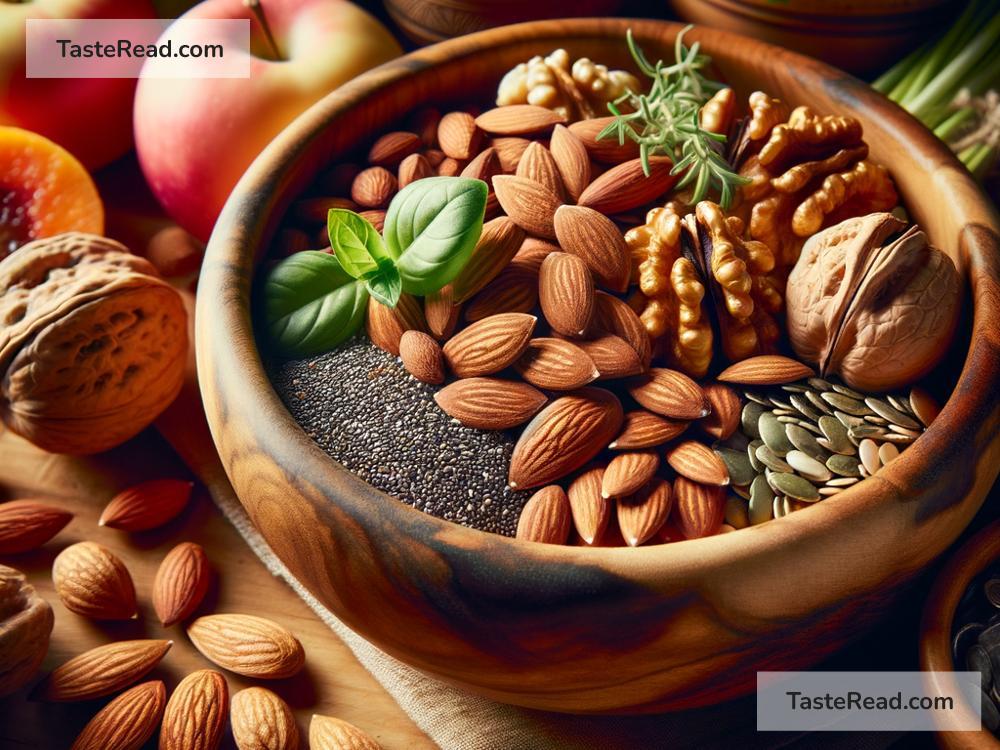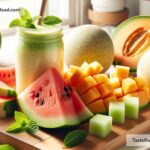Exploring the Nutritional Benefits of Nuts and Seeds
Nuts and seeds are tiny powerhouses of nutrition. Whether added to salads, blended into smoothies, or enjoyed as a snack, these foods are packed with nutrients that can boost your health and energy levels. In this blog, we’ll explore the amazing nutritional benefits of nuts and seeds, explain why they’re so good for your body, and share tips on how to include them in your diet.
What Makes Nuts and Seeds So Healthy?
Nuts and seeds may be small, but they’re loaded with important nutrients. They contain healthy fats, protein, fiber, vitamins, and minerals, which make them a fantastic choice for your diet. Below are some of the key nutrients found in nuts and seeds:
-
Healthy Fats
Most nuts and seeds are rich in unsaturated fats, which are the “good” fats your body needs. These fats help keep your heart healthy, reduce bad cholesterol (LDL), and increase good cholesterol (HDL). For example, almonds, walnuts, and chia seeds contain omega-3 fatty acids, which are especially good for your heart and brain. -
Protein
Protein is essential for building and repairing tissues in your body. Nuts and seeds are an excellent source of plant-based protein, which makes them ideal for vegetarians and vegans. Add a handful of peanuts, sunflower seeds, or pistachios to your meals to get a protein boost. -
Fiber
Fiber is crucial for a healthy digestive system. It helps keep you full, prevents constipation, and can even help control your blood sugar levels. Nuts like hazelnuts and seeds like flaxseeds are particularly high in fiber. Eating them regularly can support your gut health and help with weight management. -
Vitamins and Minerals
Nuts and seeds are packed with essential nutrients such as vitamin E, magnesium, zinc, and phytonutrients. Vitamin E is great for your skin and immune system, while magnesium supports strong bones and muscles. For example, pumpkin seeds are a rich source of magnesium, and Brazil nuts are one of the best sources of selenium, a mineral that’s important for protecting your cells. -
Antioxidants
Antioxidants fight free radicals, which are unstable molecules that can damage cells and lead to health problems. Nuts like pecans and seeds like sesame are full of antioxidants that support overall health and may reduce the risk of chronic diseases like cancer and heart disease.
Health Benefits of Eating Nuts and Seeds
Including nuts and seeds in your diet can have a lot of positive effects on your health. Here are some key benefits:
-
Improved Heart Health
Thanks to their healthy fats, fiber, and antioxidants, nuts and seeds can reduce the risk of heart disease. Studies have shown that people who eat nuts regularly tend to have lower cholesterol levels and better heart health overall. -
Better Brain Function
Walnuts, almonds, and flaxseeds contain omega-3 fatty acids and other compounds that support brain health. They may improve memory, focus, and cognitive function, especially as you age. -
Weight Management
While nuts and seeds are calorie-dense, they can actually help with weight management when eaten in moderation. Their combination of protein, healthy fats, and fiber keeps you feeling full, preventing overeating. -
Stronger Immunity
Many nuts and seeds provide nutrients that boost your immune system. For example, zinc found in pumpkin seeds helps your body fight infections, while vitamin E in almonds can protect cells from damage. -
Better Skin and Hair
The vitamins and healthy fats in nuts and seeds are great for promoting glowing skin and strong, shiny hair. Sunflower seeds, for instance, are rich in vitamin E, and walnuts contain nutrients that enhance skin elasticity.
How to Add Nuts and Seeds to Your Diet
Now that you know how nutritious nuts and seeds are, the next step is to incorporate them into your meals. Here are some simple ways to enjoy them:
-
As a Snack
Grab a handful of raw or roasted nuts and seeds for a convenient and satisfying snack. To keep it healthy, avoid varieties that are salted or covered with sugar. -
Sprinkle Them on Food
Sprinkle nuts and seeds on your cereal, yogurt, salads, or oatmeal for added crunch and nutrients. Chia seeds, hemp seeds, and almond slices are great options. -
Blend Them Into Smoothies
Add a spoonful of nut butter (like almond or peanut butter) or seeds (like chia or flaxseeds) to your smoothies for extra creaminess and nutrition. -
Bake With Them
Mix chopped nuts or seeds into baked goods like muffins, granola bars, or bread for a nutrient boost. -
Make Nut and Seed Butter
Nut and seed butters are versatile and tasty. Spread them on toast, use them as dips for fruits, or incorporate them into sauces.
A Word of Caution
While nuts and seeds are healthy, it’s important to eat them in moderation, as they are calorie-dense. For most people, a small handful (about 1-2 ounces) per day is enough to enjoy their benefits without overdoing it. Also, check for allergies — some people are allergic to certain nuts, such as peanuts or cashews.
Conclusion
Nuts and seeds are simple yet powerful foods that offer a wide range of health benefits. They’re packed with nutrients like healthy fats, protein, fiber, vitamins, and antioxidants that support your heart, brain, immune system, and overall wellness. By adding a variety of nuts and seeds to your daily meals, you can enjoy improved energy, better health, and delicious flavors. So go ahead and explore the wonderful world of nuts and seeds — your body will thank you!


